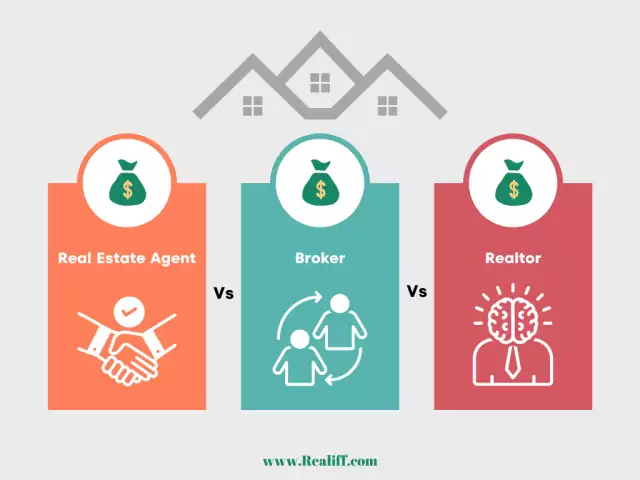Travel Agent, Realtor, and a Real Estate Agent, What Is The Difference?
Travel Agent, Realtor, and a Real Estate Agent, What Is The Difference?
The internet has crushed the travel agency profession over the last two decades. With the advent of online travel marketplaces, information asymmetry has practically vanished. Airlines are no longer required to pay a portion of their revenue to act as a matchmaker between travelers and flights. Airlines may now easily communicate with their consumers directly via the internet, lowering transaction costs, enhancing transparency, and improving the customer experience without the need for a third party.
Any industry that used to generate value from information access is now arguably under threat. Information is now freely flowing from buyers to vendors. Intermediaries dealing with scarcity of information have either gone extinct or are adapting to create more service-based business models rather than simply charging for information access.
So, what do these tendencies tell us about real estate's future? Over the last half-decade, billions of dollars in venture capital have flowed into the real estate industry under the banner of Prop Tech (property technology). These venture capitalists and entrepreneurs believe that by aggregating information and automating the frictionless transfer of data between buyers and sellers, real estate transactions will be able to move online at a lower cost and with greater efficiency. It has already happened in many other industries, so it is a safe bet.
Many transactions that used to require a third party, such as purchasing a book, booking a hotel room, or making a restaurant reservation, can now be completed easily online. Self-service web interfaces and powerful database software make these transactions more convenient and cost-effective for buyers and sellers. This is largely true for airline tickets as well, which has harmed the prospects for a career as a travel agent.
Because the goods are commodities, these transactions are more efficient when managed through automation and technology. Aside from the obvious features of flight and seat placement, there is virtually no difference between one airline ticket and the next. There are no contracts to negotiate or complicated extras to think about. This is true for any replaceable commodity where the buying process is merely transactional.
Purchasing a house is far from simple or transactional!
Buying a house, on the other hand, is far from straightforward or transactional. The amount of the purchase is the first item to consider. Purchasing a home is the most significant single purchase that most people make in their lifetime. A residence can account for up to 90% of a family's total net worth. This is a major event that should be treated extremely seriously.
And, as with any significant, generally financed purchase, extensive contracts accompany it. Purchase agreements, mortgage insurance, how to hold title, trust creation, escrow, insurance, warranties, and more are all covered. When buying a home, navigating the complexities of the legal and financial landscape is not something to be taken lightly. Poor decisions or improper advice can lead to massive financial losses or even bankruptcy.
Then there's the fact that the majority of houses aren't commodities. If you reside in or want to buy in a planned community where all of the houses are built from a model and are functionally interchangeable, the risk of acquiring comparable sales data and contingency risks is minimal. However, housing stock may vary in many urban locations, which frequently constitute the hottest real estate markets. This makes it harder to identify comparables and necessitates additional attention to detail regarding earthquake, liquefaction, or flood zones, property age and condition, walkability, public school quality, availability of public transportation, and a variety of other essential lifestyle aspects.
Finally, there are numerous parties engaged in a real estate transaction. Mortgage brokers, loan and escrow officers, underwriters, property inspectors, and numerous forms of vendors are all examples of vendors. Buying a home is clearly a complex transaction that is rarely viewed as a commodity sale.
As a result, the real estate market continues to rely on professional brokers to assist buyers and sellers in successfully navigating this complex process. Quality agents not only understand the contracts and can advise you on the complexities of the buy or selling process, but they also bring a network of crucial relationships to the table. They know who the other top agents are and how to get the greatest deals for their clients. They know where to find financing and how to negotiate the best rates and terms for a high-quality offer. They have a list of trustworthy vendors that can do repairs, stage a home, or pass an inspection. They understand how to price a property to sell in different market situations, and they know where to publicize the sale to generate the most attention and the highest sales price.
The myriad issues and complexities of the real estate sales process cannot be addressed simply by linking a buyer and seller in a digital marketplace. Services like Realiff have boosted transparency in terms of housing prices and available inventory. These technologies have boosted efficiencies across the process and empowered buyers and sellers in ways that were previously impossible. However, it is not by chance that the vast majority of transactions continue to include an experienced agent. The intricacy of the process and the network of relationships required to achieve good outcomes for all stakeholders continue to rely heavily on professionals.
While technological developments in the real estate sector are expected to continue, the idea of disintermediation of agents and brokers still sounds like a science fiction story from the distant future.
Realtors and Travel Agents – Helping You Reach Your Destination
Maybe you haven't considered it this way, but realtors and travel brokers aren't that dissimilar. Both work to get you to your goal so you can have fun! And both of them do it professionally. That's why, even with the number of do-it-yourself options for both real estate and vacation planning, having an expert in each sector help you navigate your transaction and get the most for your money is still a huge benefit in today's environment.
What are you looking for?
"Be clear about the benefits you are expecting when utilizing a travel agent!" urged Lene Minyard, travel agent at Perfectly Planned Journeys. Is it a time saver? Expert advice and assistance in the event that something goes wrong? Are you looking to organize a group trip? If this is the case, you should strongly consider hiring a travel agent!"
The same is true while working with a realtor. Realtors are interested in learning about your preferences for a house or neighborhood. They want to know what price range you're comfortable with and if you're pre-qualified for a mortgage. And what if something goes wrong? You should absolutely work with a realtor.
What resources will you need?
According to Minyard, travel agents work with reliable suppliers and have resources that the general public does not have. They have access to merchants and certain destinations that most people do not. This keeps you from having a negative vacation experience, which is common when you use a vendor who isn't reputable or trustworthy.
On the real estate front, a website can provide a forum for you to market your home or seek a new home, but it cannot provide professional advice on how to negotiate the best price, which neighborhoods are the greatest, and other secret tips and tricks. A realtor can help you with all of this, as well as connect you with other respected professionals.
What’s the niche?
Distinct travel brokers may specialize in different specialized markets. If you want to arrange a Disney vacation or a Caribbean vacation, seek a travel agent who specializes in those areas. That travel agent will have firsthand knowledge about the location you want to visit.
There are specialized travel agents, just as there are niche realtors who specialize in specific regions or types of real estate. When looking for a home or selling your home, look for the best agent for you and your situation.
You need a partner!
"There is just no possibility that a travel agent can know everything about every destination and every provider," Minyard said. Consider your travel agent to be a partner and an extra layer of security – someone who will work with you to put together the right trip for you, assist you in preventing problems, and help you handle any issues that arise. Remember that the more information you give him or her, the better he or she will be able to create a wonderful trip for you."
What about realtors? Being a realtor is similar to having an insurance policy for your real estate transaction. Realtors are knowledgeable partners who can walk you through the process of purchasing or selling a home from start to end.









